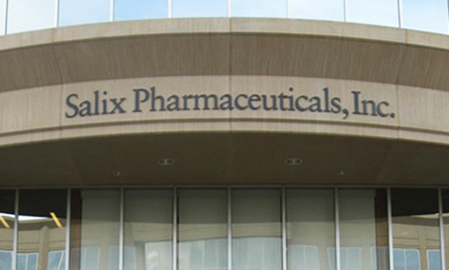New tax rules have quashed the $2.7-billion Salix-Cosmo tax-inversion deal that would have allowed Salix Pharmaceuticals to benefit from an Irish tax address, and the breakup will cost Salix $25 million to get out of the deal. This is just one of many of this summer’s M&As in which companies have been looking to set up headquarters for ex-US tax purposes, while still keeping US officers in place. Reaction to the new rules has been mixed: AbbVie, for example, told employees its deal with Shire will go on, while Medtronic is looking to modify its Covidien deal to better meet the current tax environment. Bloomberg noted that a Congressional committee estimated the new tax rules would raise around $20 billion over the next 10 years. Cosmo’s CEO told Bloomberg he was not disappointed that the deal fell through.
Decision Resources says the chronic heart failure market is poised to jump from last year’s $2.8 billion to $8.9 billion by 2023. The key: Novartis’s experimental drug LCZ-696. The twice-a-day drug received a warm embrace at the last month’s European Society of Cardiology Congress for reasons that include reduced mortality and lower hospitalization costs. Researcher Scott Solomon told MM&M at the time that the results “exceeded all of our expectations” and that a key feature of the drug is that it is a replacement drug, as opposed to being an add-on medication. Decision Resources said in a statement that candidates from Bayer, Teva and Celladon could provide $2 billion in sales across seven markets.
Rising generic drug prices have lawmakers’s attention. The Wall Street Journal reports that two Congressmen are investigating a trend of charging more for a class of drugs that have traditionally been considered a bargain, and that a recent analysis found that 50% of generics have become more expensive within the last 12 months. The Journal notes that pharmacies have had to pay about twice as much for one out of every 11 generics, and price increases for some drugs have multiple zeroes attached, such as 1,000%.
The UK’s National Institute for Health and Care Excellence, known as NICE, issued draft guidance that says Roche’s chronic lymphocytic leukemia drug obinutuzumab (approved in the US as Gazyva, called Gazyvaro abroad) should not be approved for National Health Service reimbursement. PM Live reports that NICE’s chief executive officer said the drug, which is part of a combination therapy, was a “clinically effective treatment [but] there were too many uncertainties in the company’s submission and we cannot be confident that it is an effective use of NHS resources.”
The US thinks the FDA is doing a pretty good job of protecting the public. Regulatory Focus reports that a poll by a pro-regulatory group showed that 58% of the people polled had a favorable view of the agency, compared to the 32% thumbs-up rating this same group gave to the government as a whole. Almost 60% of respondents also said they felt FDA regulation was important.
Early weekend read: we revealed winners of the MM&M Awards last night. See who won.








